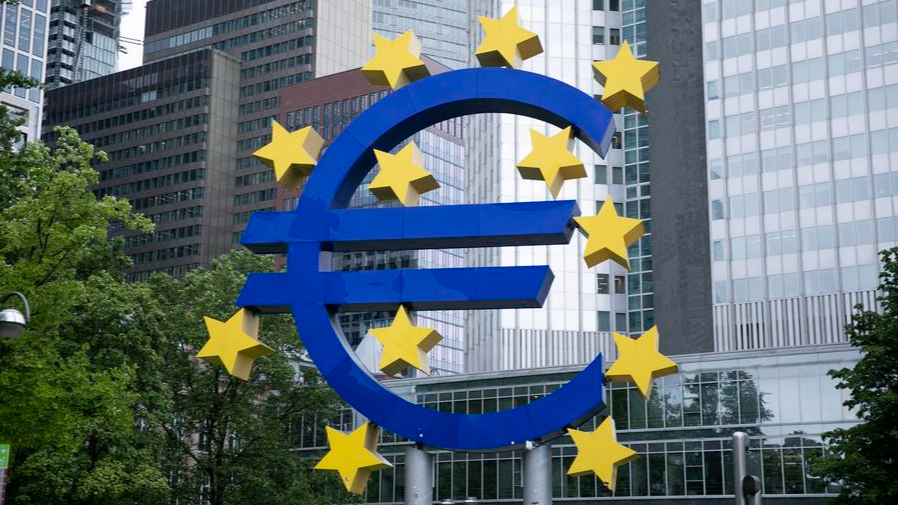
The euro zone economy kept expanding at a snail's pace in August as weaker services growth offset improved manufacturing output, despite the first rise in overall new orders since May last year, a survey showed on Wednesday.
The HCOB Eurozone Composite Purchasing Managers' Index (PMI), compiled by S&P Global, inched up to 51.0 in August from 50.9 in July, marking a 12-month high but still indicating only modest growth. The 50.0 threshold separates growth from contraction.
New orders across the economy increased for the first time since May last year, though only slightly, as domestic demand offset falling export orders, which declined at the fastest pace since March.
READ MORE: Euro zone growth to stall as short-lived trade boost unwinds
Among the major euro zone economies, Spain remained the best performer despite growth easing, followed by Italy, which saw a slight acceleration. Germany's expansion slowed, while France remained in contractionary territory, although its PMI rose to a 12-month high of 49.8.
"Riding a bike too slowly can make you tip over. That's the risk facing the euro zone. Yes, the economy has been growing since the start of the year, but the pace is painfully slow," said Cyrus de la Rubia, chief economist at Hamburg Commercial Bank.
"Political tensions in France and Spain, uncertainty around the EU-US trade deal, and ongoing troubles in the key automotive sector aren’t helping."
The EU and the US struck a framework trade deal in late July but only the baseline tariff of 15 percent has so far been implemented.
The services sector, which dominates the bloc's economy, saw growth slow to a marginal pace with its PMI falling to 50.5 in August from July's four-month high of 51.0.
Manufacturing showed its strongest production increase in nearly 3-1/2 years, providing a bright spot in an otherwise subdued economic landscape.
Overall employment growth accelerated to a 14-month high, with services firms increasing headcounts while factories continued to shed staff.
READ MORE: EU leaders to back tighter euro zone fiscal stance in 2025
However, price pressures intensified in August, with input costs rising at the fastest pace since March and companies raising their prices at the steepest rate in four months, potentially complicating the European Central Bank (ECB)'s inflation outlook.
Overall inflation in the bloc edged up a touch in August to 2.1 percent, staying around the ECB's 2 percent target and likely firming up expectations of interest rates remaining unchanged in the near-term.
Business confidence barely changed from July and remained below its long-term average, suggesting firms remain cautious about future growth prospects.


